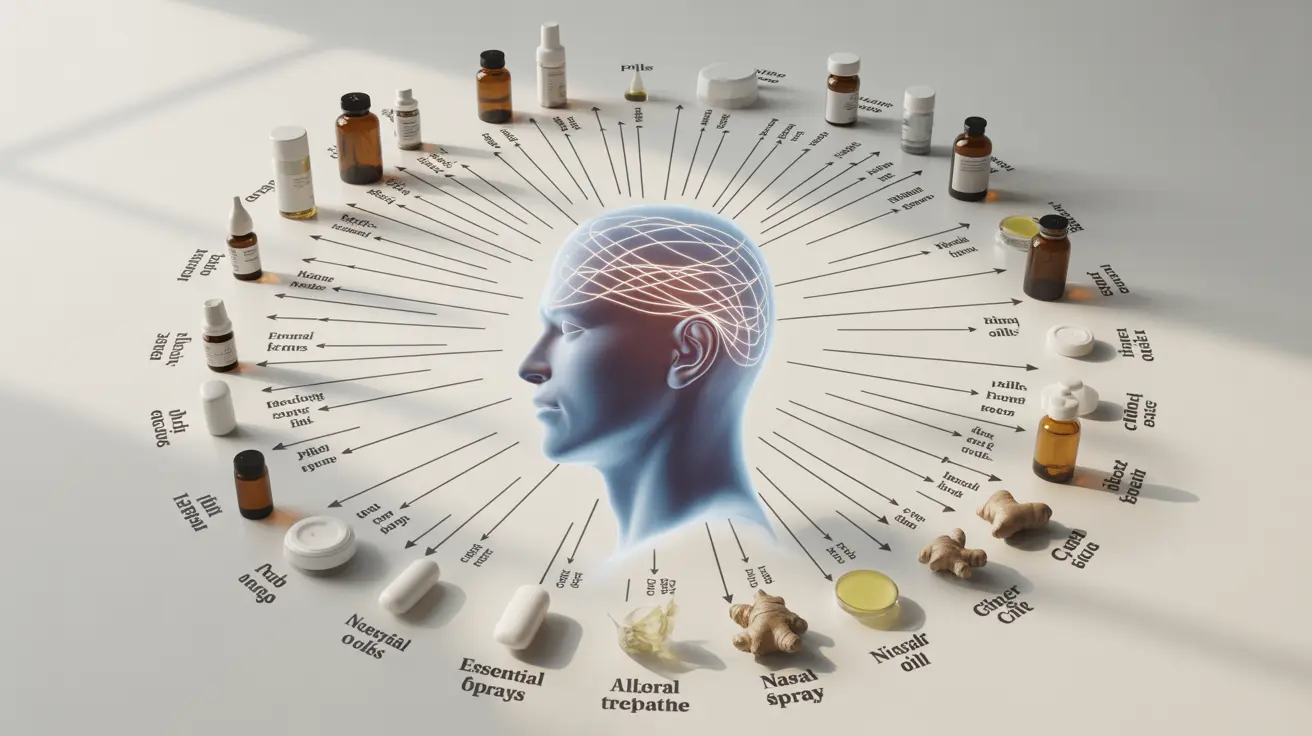Living with migraines can be debilitating, affecting every aspect of daily life. Whether you're experiencing acute symptoms or seeking long-term solutions, understanding the full spectrum of migraine relief options is crucial for managing this challenging neurological condition.
This comprehensive guide explores both immediate and preventive treatments, from medications to natural remedies, helping you build an effective strategy for migraine management.
Immediate Medical Interventions for Migraine Relief
When a migraine strikes, quick and effective treatment is essential. Over-the-counter medications like ibuprofen, aspirin, or acetaminophen can provide initial relief for mild to moderate migraines. For more severe cases, prescription medications such as triptans, which target specific pain pathways in the brain, often prove more effective.
Anti-nausea medications (antiemetics) may also be prescribed alongside pain relievers to address common migraine symptoms. Some patients find relief with newer treatments like CGRP antagonists, which specifically target migraine mechanisms.
Natural and Alternative Approaches
Aromatherapy and Essential Oils
Lavender oil has shown promise in reducing migraine severity when used in aromatherapy. Apply diluted lavender oil to the temples or use it in a diffuser during an attack. Peppermint oil may also help by providing a cooling sensation and potential pain-relieving properties.
Herbal Remedies
Ginger has demonstrated effectiveness in reducing migraine symptoms, particularly nausea. Whether consumed as tea or in supplement form, ginger offers both anti-inflammatory and anti-nausea benefits. Feverfew, another herb with historical use in migraine treatment, may help prevent attacks when taken regularly.
Preventive Treatments and Lifestyle Modifications
Regular use of preventive medications can significantly reduce migraine frequency. Common options include beta-blockers, calcium channel blockers, and certain antidepressants. Botox injections have also proven effective for chronic migraine prevention in many patients.
Dietary Considerations
Identifying and avoiding personal migraine triggers through food diary tracking can prevent attacks. Common dietary triggers include:
- Aged cheeses and processed meats
- Caffeine withdrawal or excess
- Alcohol, especially red wine
- MSG and artificial sweeteners
- Dehydration
Advanced Treatment Options
Neuromodulation Devices
Modern neuromodulation devices offer a non-pharmaceutical approach to migraine management. These devices work by delivering electrical or magnetic pulses to specific nerves involved in migraine pain. Options include transcutaneous electrical nerve stimulation (TENS) units and single-pulse transcranial magnetic stimulation devices.
Self-Care Strategies for Migraine Management
Implementing effective self-care practices can significantly impact migraine frequency and severity:
- Maintaining consistent sleep schedules
- Regular exercise and stress management
- Creating a quiet, dark environment during attacks
- Using cold or hot compresses
- Practicing relaxation techniques
Frequently Asked Questions
What are the most effective medications for immediate migraine relief? Triptans, NSAIDs, and combination medications containing caffeine are among the most effective options. For severe cases, prescription medications like DHE or antiemetics may be necessary.
How can natural remedies like lavender oil or ginger help reduce migraine symptoms? Lavender oil can help reduce pain intensity through aromatherapy, while ginger provides anti-inflammatory and anti-nausea benefits. These natural remedies work best when used alongside other treatment strategies.
What preventive treatments are available to reduce the frequency of migraines? Preventive options include beta-blockers, anticonvulsants, calcium channel blockers, and regular Botox injections. Lifestyle modifications and trigger avoidance are also crucial components of prevention.
How do neuromodulation devices work for migraine relief and prevention? These devices use electrical or magnetic stimulation to interrupt pain signals and modify nerve activity involved in migraines. They can be used both during attacks and as preventive measures.
What self-care strategies can help manage or prevent migraine attacks? Key strategies include maintaining regular sleep patterns, managing stress, staying hydrated, avoiding known triggers, and creating a migraine-friendly environment during attacks. Regular exercise and relaxation techniques also play important roles.




